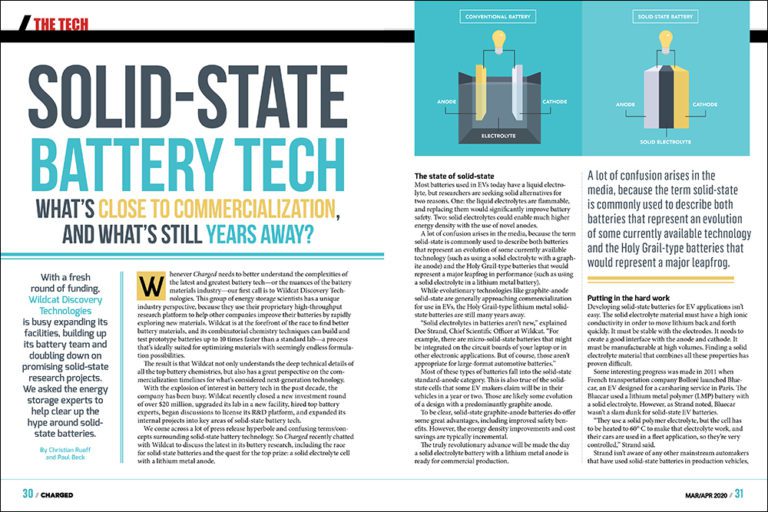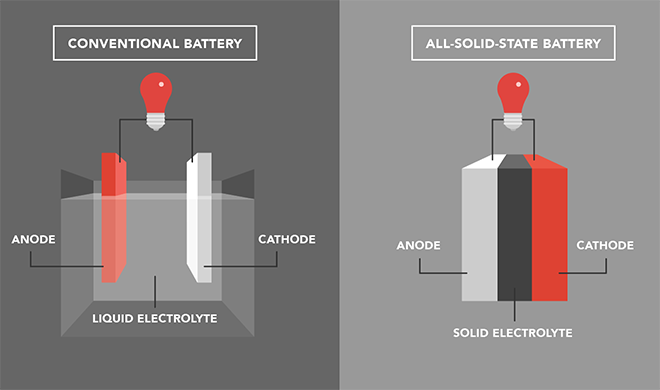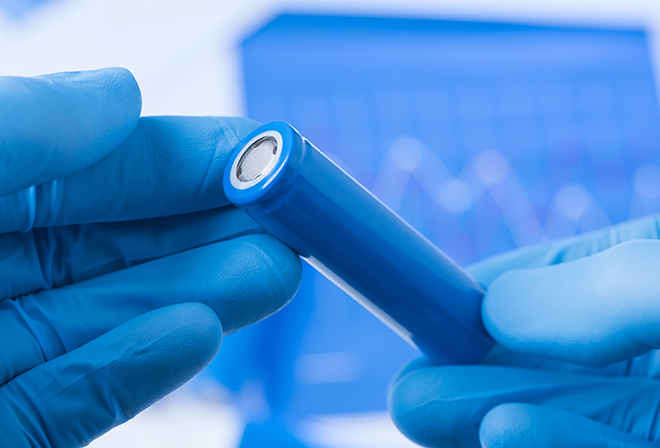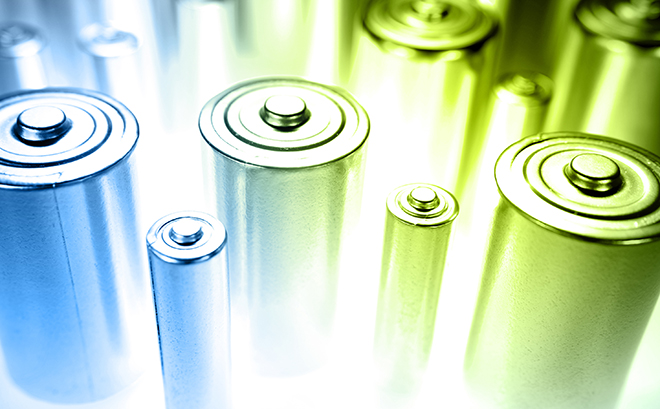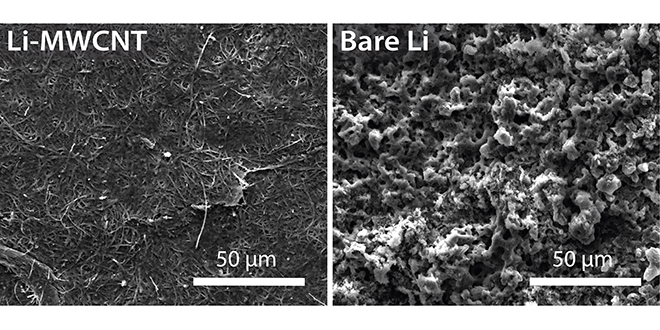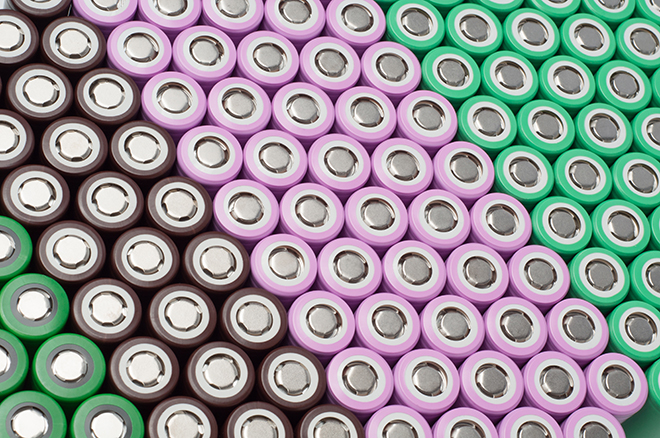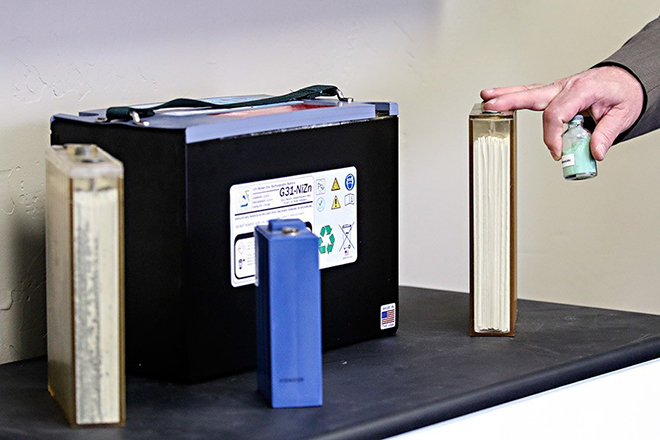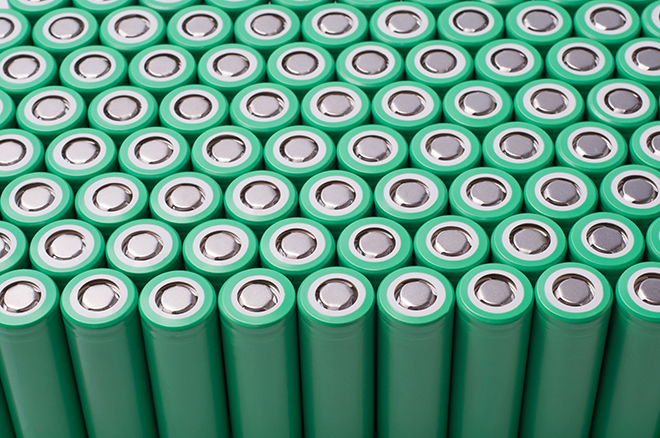With a fresh round of funding, Wildcat Discovery Technologies is busy expanding its facilities, building up its battery team and doubling down on promising solid-state research projects. We asked the energy storage experts to help clear up the hype around solid-state batteries. Whenever Charged needs to better understand the complexities of the latest and greatest battery… Read more »
Search Results Found For: "dendrite"
Researchers make Ceramic-based flexible electrolyte sheets for lithium metal batteries
Researchers at Tokyo Metropolitan University have developed a new method to make ceramic-based flexible electrolyte sheets for lithium metal batteries. They combined a garnet-type ceramic, a polymer binder, and an ionic liquid, producing a quasi-solid-state sheet electrolyte. The synthesis is carried out at room temperature, requiring significantly less energy than existing high-temperature (>1,000° C) processes…. Read more »
Samsung researchers describe all-solid-state battery with silver-carbon composite layer
Researchers from the Samsung Advanced Institute of Technology (SAIT) and the Samsung R&D Institute Japan (SRJ) have published a study on high-performance, long-lasting all-solid-state batteries in the journal Nature Energy. Compared to lithium-ion batteries, which employ volatile liquid electrolytes, all-solid-state batteries use non-volatile solid electrolytes that support greater energy density. However, their lithium metal anodes… Read more »
IBM unveils heavy metal-free battery that performs better than Li-ion
IBM Research has unveiled new battery materials extracted from seawater that it says could help eliminate the need for dangerous heavy metals in battery production. Use of the three new proprietary materials create a battery chemistry that does not use heavy metals or other substances that suffer from concerns about sourcing. Beyond the environmental and… Read more »
Researchers create air-stable, waterproof wax coating for lithium metal anodes
Lithium metal is a promising new material for battery electrodes, thanks to its high specific capacity and low voltage, but safety issues caused by dendrite growth and instability in air caused by its high chemical activity limit its large-scale use as an electrode material. However, a simple and efficient solution could be on the way… Read more »
Carnegie Mellon researchers develop semi-liquid lithium metal anode to pair with solid ceramic electrolytes
Researchers from Carnegie Mellon University have developed a semi-liquid lithium metal-based anode that could lead to higher capacity and better safety than typical lithium metal-based batteries that use lithium foil as anodes. The research team published their findings in the June 2019 issue of Joule. “Incorporating a mewtallic lithium anode into lithium-ion batteries has the… Read more »
Carbon nanotubes help make lithium metal batteries more durable
Carbon nanotubes could make high-powered, fast-charging lithium metal batteries an alternative to lithium-ion batteries, according to new research from Rice University. In a paper published this month in the journal Advanced Materials, the researchers show how a carbon nanotube film can be used to keep batteries safe from dendrites, spear-like protrusions that naturally form on… Read more »
University of Michigan researchers develop non-combustible, non-degrading ceramic electrolyte
Scientists at the University of Michigan have developed a solid-state electrolyte which they claim is non-combustible (which is good, because it’s heated to over 1,800° F during manufacturing!) and not vulnerable to dendrite formation due to a stabilizing ceramic layer. The electrolyte has special properties that allow for increased capacities and faster charging rates as well. Current… Read more »
ZAF to use $300,000 grant to increase production of nickel-zinc batteries
Nickel-zinc (NiZn) specialist ZAF Energy Systems has received $300,000, the first installment of a $600,000 investment from Missouri’s Department of Economic Development. With the new funding, ZAF will increase production capacity to meet the increasing demand for its NiZn batteries. The company claims that the batteries have double the storage capacity and triple the power… Read more »
Cambridge study reveals fast-charging potential of niobium tungsten oxides
Cambridge research has shed light on the potential of a previously ignored class of electrode material: niobium tungsten oxides. These compounds display several promising properties, including a lack of the dendrite formation which plagues graphite-based designs. They have a relatively large particle size and a structure that allows lithium ions to travel freely. This high transport rate can… Read more »







